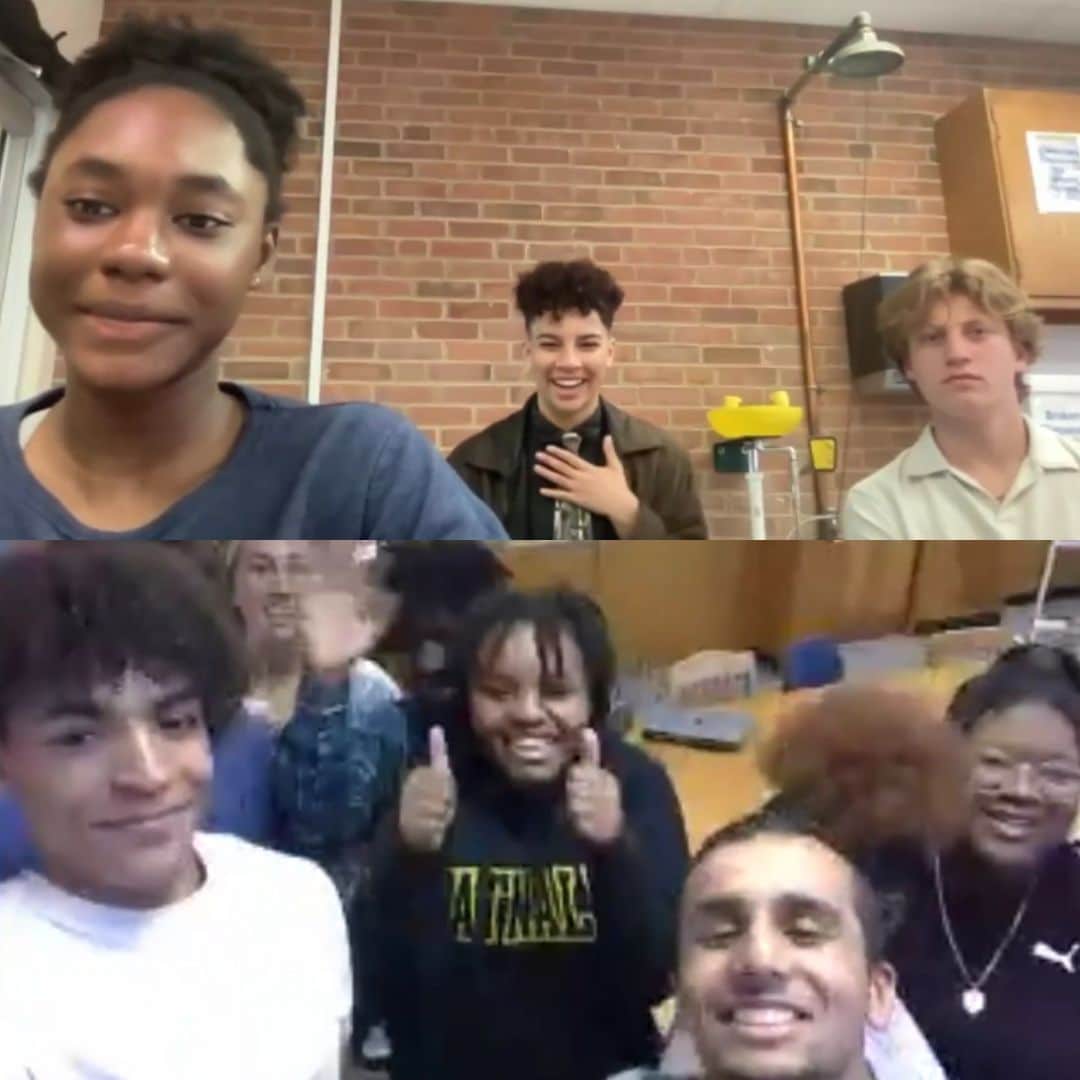Are wealthy countries responsible for mitigating the effects of climate change in developing countries? Students take up the debate — and find common ground.

(Credit: Badmanproduction/Getty Images)
“Developed countries should make a sincere effort to mitigate the effects of climate change in developing countries.”
This was the opening statement from Neil Gheyi, a student at The Tatnall School in the U.S. state of Delaware, on 15 April 2024. Gheyi was on the Affirmative team for News Decoder’s first live student debate.
The event was presented as part of Decoder Dialogues, an open forum for students from News Decoder’s partner schools to engage in discussion about big global issues.
Six students on two opposing teams went head to head to discuss whether nations like the United States, that are historically the world’s biggest carbon polluters, should help developing countries that face the consequences.
“Although every country has their own separate agenda, and own priorities, we still live on the same planet,” Gheyi said.
Convincing the opposition
Focusing on mitigating the effects of climate change is “like placing Band-Aids over a gunshot wound,” argued Morgan Noel for the Negative team.
Their argument was supported by Camille Johnson and Jack McConnell.
Noel, Johnson and McConnell had the near-impossible task of arguing that it is not the responsibility of developed nations to help mitigate the effects of climate change in developing countries.
And their delivery was so enthusiastic, their arguments so sharp and clever, that they almost convinced the judges.

Negative Team (top) and Affirmative Team (bottom).
“The responsibility of any country is to first care for their people,” Johnson said, arguing that each and every nation has the responsibility to enforce laws within their own country to prevent climate change from furthering. “All we can do is focus on what emissions we are putting into the atmosphere.”
And while the Affirmative team argued that mitigating the effects of climate change in developing countries will help stop an impending refugee crisis, the Negative team was not convinced.
“There will continue to be nowhere to go [for refugees] if all we focus on is mitigating the effects,” Noel said.
Noel presented a graph by the Centre for Global Development showing that developing countries are now responsible for 63% of the world’s current carbon emissions, arguing that it is therefore not the sole responsibility of developed countries to address climate change.
“It is in everyone’s best interests not to mitigate the effects of climate change but to stop the source,” Noel said.
A global issue requires a global solution.
The Affirmative team — of course — had a different opinion.
“Imagine a contagious disease spreading rapidly across the world,” Emmanuella Cheaye said.
“Developed countries where the outbreak originated had better access to healthcare resources and vaccines, while underdeveloped countries struggled to deal with the spread due to limited resources,” Cheaye said. “Just as it is in the interests of the whole world to contain and treat the disease globally, it is imperative for developed countries to assist underdeveloped ones in combatting the effects of climate change which affects everyone regardless of borders.”
“Climate change is a global issue so it requires a global solution,” Cheaye said.
Who made the most persuasive case?
The judges — climate and development finance expert and journalist Susanne Courtney, award-winning climate journalist and author of The Great Melt Alister Doyle and myself, News Decoder’s climate journalism program manager — had a hard decision to make.
“The Affirmative team — Neil, Emmanuella and Paige — brilliantly hammered home right from the start a key argument that developed nations, led by the United States, have emitted far more greenhouse gases since the Industrial Revolution than developing countries and so have a responsibility to help everyone clean up the planetary mess,” Doyle said.
While it was the Affirmative team who swayed the judges, it was a close tie.
“The Negative side cleverly focused on how China is now the leading source of emissions and that developing nations’ combined emissions exceed those of the developed world,” Doyle said.
“While one team must win, both teams executed arguments based on extensive preparation,” Courtney said.
Value beyond the classroom
Courtney, who is a former university debater herself, said these kinds of exercises “forge lasting value.”
“At the very least, a generation of informed, educated people who understand the North-South context, will be demanding voters and sensitive to the opportunity and resource discrepancies between developed and developing countries,” Courtney said.
Doyle added how great it is to see students already well-versed in complicated topics.
“Worsening climate change this century is going to harm young people far more than older generations and we all have to pay more attention to the concerns of the young,” Doyle said. “Governments should focus more on the long-term impacts of climate change on the planet, and on young people and future generations who don’t have a vote.”
Strong legislation and viable solutions
In the end, the teams agreed on one thing: something needs to change.
“We need long-standing true to form preventative climate change legislation. We need to address the emissions, address head on what’s causing them, before the climate crisis takes over us all,” said McConnell from the Negative team.
“As these developing nations march towards a technological future, these emissions will only increase unless they take strong standing legislation against carbon emissions,” McConnell said. “We require more than just a Band-Aid. We need a long standing precedent that states that they will turn towards green energy as these countries grow and expand.”
And Paige, wrapping up the Affirmative team’s stance, offered a solution.
“We should try and help with the transition of renewable energy. We should improve our energy efficiency and buildings, transportation and industry. We should try and protect and restore the forests that we’ve lost due to climate change,” she said.
“Sustainable agriculture. Electrification of transportation. Enhanced waste management. Climate resilience and adaptation,” Paige continued. “These are all vital things for every country to do.”
Watch the teams debate below.
Questions to consider:
- Do you think wealthy nations are responsible for mitigating the effects of climate change in developing countries? What are your arguments for and against?
- What were the strongest arguments made by the students at The Tatnall School?
- Why is it important that climate change — and the politics of it — is part of school education?

Amina McCauley is News Decoder’s Climate Education program manager. Born in Australia and living in Denmark, Amina has a background in reporting, media analysis and teaching and a particular interest in the relationship between humans, their environment, and the media.
